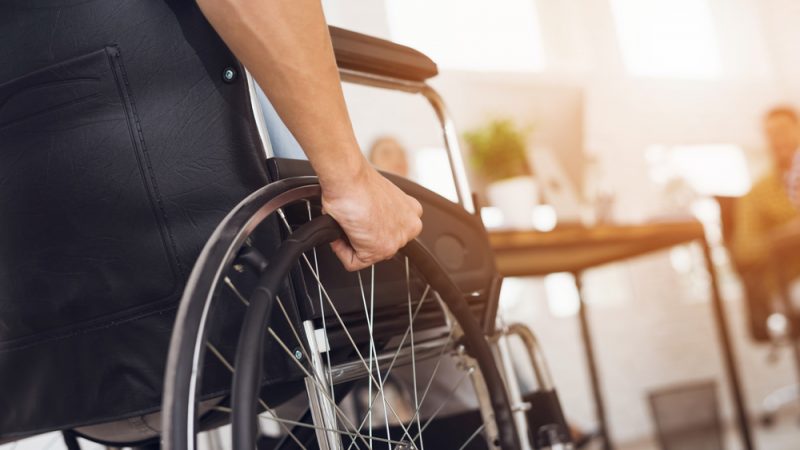
Local people are telling me that they have worked hard all their lives, contributing to a system that is increasingly unbalanced and unfair.
They question why they pay taxes and get nothing back and point to those they know, friends and relatives, who have become accustomed to living on benefits without checks or balances, whose lifestyles they are funding.
Unlike other westernised countries where out of work rates have fallen since Covid, they have continued to rise in the UK.
We face a situation where 1,000 people a day are signing up to PIP, and one in eight young people are beginning their working life on benefits. Claims are set to double from 2 million to over 4.3 million this decade. The benefits system has become unaffordable.
The feckless squeezing out the needy
When families adapt to a lifestyle of living on benefits, it becomes intergenerational, and the checks and balances of the system have become easy to override. Those who are in most need are treated in the same way as those playing the system and we end up losing at both ends of the scale. The feckless squeezing out the needy.
I see people with complex needs not being able to fully participate in society competing with those who survive by playing the system, coached on best answers to the questions. Both end up losing out, because they are disadvantaged and therefore excluded, but there are too many beginning their working life presuming that somebody else will always pick up the bill.
READ MORE: Welfare reform bill: MPs on why they back the amendment – or back Kendall
No one disagrees that reform is needed and when less than 7% of applicants do not have face to face assessment it makes it all too easy for some people not to take the big step into the world of work. We have too many young people living lives locked in their bedrooms sitting in front of computer screens.
In my area, the impacts of raising retirement ages over the past decade has seen people with worn out knees and hips from years of manual work having to drop out of work, with limited options for retraining or workplace adjustments.
Subscribe here to our daily newsletter roundup of all things Labour – and follow us on Bluesky, WhatsApp, Threads, X or Facebook.
Change needs to begin with an NHS that provides fast routes to mental health support and treatment for musculoskeletal diseases. I welcome that my local hospital has been targeted for additional support to get its operating theatres open seven days a week. This is joined up thinking being put into action, getting people off benefits and back into work.
We already have Cerealto, a food production factory in Bassetlaw, a company that prides itself in providing reasonable adjustments to enable people with disabilities to come to work.
It is about valuing work not encouraging idleness
It is not government versus disabled, it is about effective support for those who need it and a total shift away from the lazy, sloppy systems that the Tory Party created, once in the 80s and now more recently. It is about valuing work not encouraging idleness.
No one disagrees that the system must protect the most vulnerable and we all need reassurances. Nine out of ten current PIP recipients will continue to receive the support that they need. The Mobility element of PIP remains. Those who can never work will receive the higher rate of Universal Credit and will be protected from the all too regular fear of reassessment.
Nothing will change until November 2026, and no one will lose PIP without an assessment with a trained professional. It is important that those who face adjustments to PIP levels are passported to Carers Allowance and will be able to access support from the Department for Health and Social Care.
Reforming the PIP criteria must not be about shrinking the goalposts but ensuring that the finances are in place for the additional support needed to improve health conditions and high-quality, tailored support to assist people into work, with £200m already allocated per year rising to £1bn in 2029/30. It helps that Stephen Timms, the most hard-working MP in the country, is the Minister tasked with overseeing this.
I will fight like a lion on behalf of my constituent who unfairly loses their PIP, but I am also listening to my constituents who tell me they want a fair system, where they are valued for working hard and this is underlined by the fact I’ve only received 121 emails on this issue from a population of over 75,000.
- SHARE: If you have anything to share that we should be looking into or publishing about this story – or any other topic involving Labour– contact us (strictly anonymously if you wish) at [email protected].
- SUBSCRIBE: Sign up to LabourList’s morning email here for the best briefing on everything Labour, every weekday morning.
- DONATE: If you value our work, please chip in a few pounds a week and become one of our supporters, helping sustain and expand our coverage.
- PARTNER: If you or your organisation might be interested in partnering with us on sponsored events or projects, email [email protected].
- ADVERTISE: If your organisation would like to advertise or run sponsored pieces on LabourList‘s daily newsletter or website, contact our exclusive ad partners Total Politics at [email protected].




More from LabourList
Ashley Dalton resigns as health minister for cancer treatment
Paul Nowak column: ‘Labour must focus on the basics’
‘Labour’s two-child cap victory rings hollow while asylum-seeking children remain in poverty’